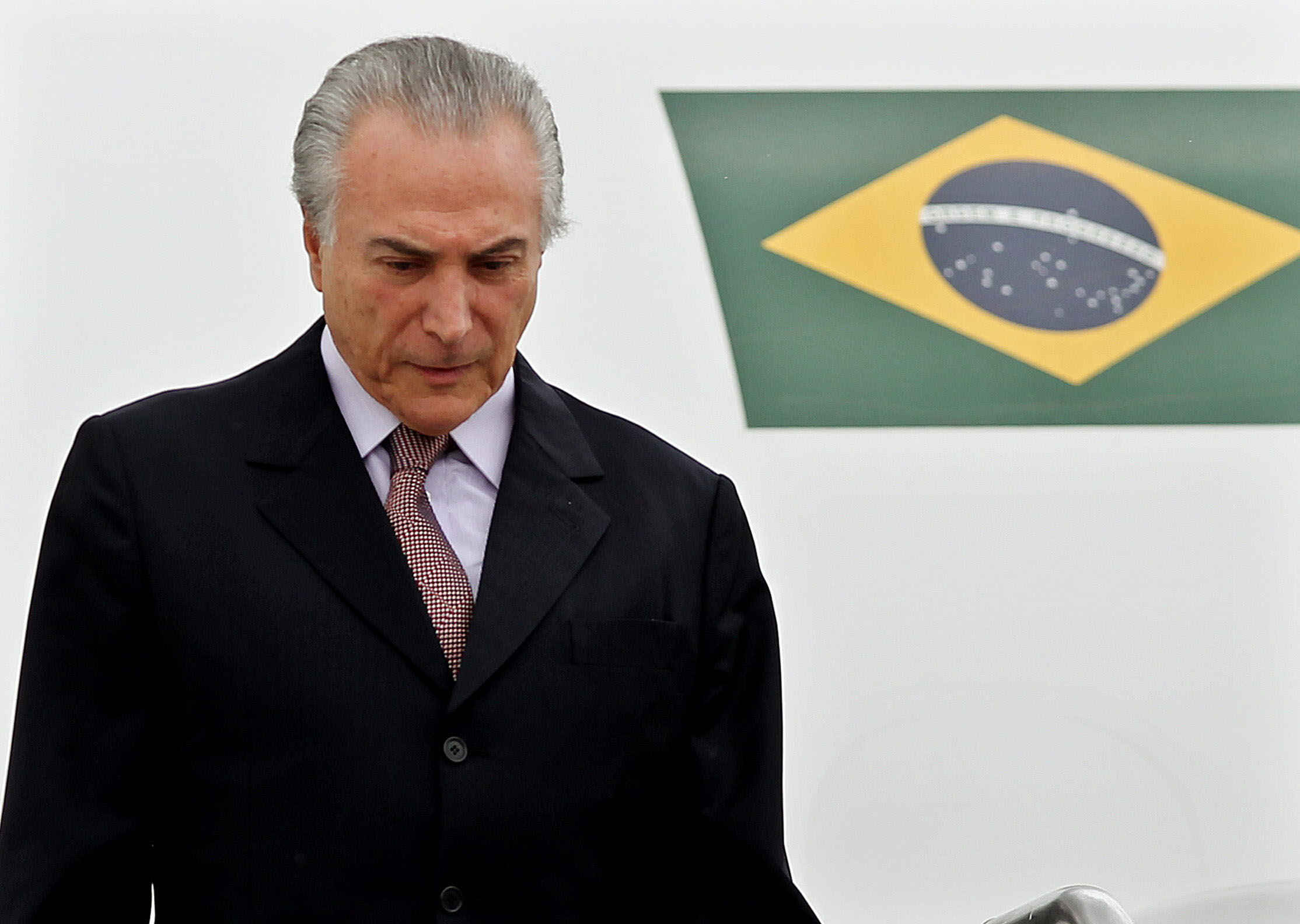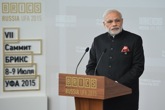BRICS should prepare for ‘Braxit’: a Brazilian exit

The BRICS group should ensure Temer is not able to impact the cohesion of the BRICS.
EPAWill the new pro-American government in Brazil force a Braxit and bring down the BRICS wall? According to Oliver Stuenkel, Assistant Professor of International Relations at the Getulio Vargas Foundation (FGV) in Sao Paulo, "many Brazilian analysts believe it is time to leave" the BRICS.
Just three years ago, South America’s largest nation had declared it wanted to disconnect from the US controlled internet due to the National Security Agency’s invasive surveillance tactics that included tapping (then) President Dilma Rousseff’s phones. Today the same country under a new leader, Michel Temer, widely viewed as an American informant, is tilting heavily towards the US camp. It also appears to be moving away from the BRICS group, of which it is a founding member.
Brazil’s transformation is no accident. It is a result of an enormous backlash against Rousseff’s Workers Party from a right wing coalition in which a rapidly growing population of evangelical extremists is calling the shots. From just 5 per cent of the population in 1970, evangelicals now account for 22 per cent of Brazil’s 200 million population. They are on course to become a majority by the middle of the century.
Evangelical churches with strong connections to – and sometimes remote controlled from – their American headquarters are already playing kingmaker in the country, reversing Brazil’s progressive social laws. It is very likely that believers of these US-style churches will also end up dictating foreign policy. This will force Brazil to move away – and possibly turn against – countries such as Russia and India, where a liberal ethos prevails.
In just under 35 years, Brazil will have a majority pro-American population. That’s enough time for the BRICS to prepare for life without Brazil. Here are four ways to go about it.
Expand, expand, expand!
Being small is a virtue only if you are a midget in a freak show. If NATO can work with 28 members then so can the BRICS, which is clearly a more relevant group. Having coalesced around a core set of five nations, the BRICS must now open its doors to additional nations in order to gain further traction. The group has captured the world’s imagination as a body that has been able to end the neo-colonial West’s nation wrecking agenda. Another drawcard is the BRICS idea of equitable growth, which appeals to a diverse bunch of nations.
The group should cash in on this goodwill by inviting mid-sized economies such as Indonesia, Malaysia, Argentina, Nigeria and Egypt. Some of them don’t need an invitation as they’re keen to be in. Argentina would be an excellent candidate because it can replace Brazil as South America’s representative. Also, if Brazil decides to quit, Argentina’s inclusion would force it to rethink. Brazilians would hate it if their large southern rival replaces them in such a powerful organisation.
Quarantine Temer
Wikileaks reveals Brazil’s interim President Michel Temer provided political intelligence to the National Security Council and military in his capacity as leader of the ruling PMDB party. According to the global whistleblower, Temer communicated with the US embassy in Brazil and the information he provided is classified as "sensitive" and "for official use only". It brought attention to two cables, one dated January 11, 2006, the other June 21, 2006. One shows a document sent from Sao Paolo, Brazil, to – among other recipients – the US Southern Command in Miami.
So how does that concern the BRICS? If Temer is indeed an American tool, then he could throw a monkey wrench into the BRICS machinery and paralyse it much the same way Britain has acted as America’s Trojan Horse within the European Union.
Temer, one of the ringleaders who engineered the fall of the pro-BRICS Rousseff, is himself under investigation. It’s likely he and his cohorts will plunge Brazil into a period of great upheaval and instability. Says financial intelligence website Zero Hedge: “As a reminder, the last time the US instituted a puppet government was in 2014 when in yet another ‘bloodless coup’, the president of Ukraine was overthrown and replaced with a billionaire oligarch, a scenario comparable to the one in Brazil.”
The BRICS group should ensure Temer is not able to impact the cohesion of the BRICS, which is already bracing for geopolitical tension between India and China over the presence of a sizeable Indian Navy flotilla in the South China Sea and Beijing’s refusal to allow New Delhi into the Nuclear Suppliers Group.
Learn from Dilma’s fate
Under President Rousseff, the Brazilian economy was chugging along just fine. However, as a key pillar of the BRICS group, Brazil seems to have attracted America’s ire. The anti-Dilma coalition of parties such as Temer’s PMDP as well as evangelical church groups – definitely remote controlled by Washington – created so much trouble or her that the President was forced to rule by decree for most of her second term.
Like Ukraine, which is in a royal mess today, Brazil’s gross domestic product shrank by 3.8 per cent in 2015, and is slated to contract by that much again this year. Inflation and unemployment are both above 10 per cent. The Brazilian stock market has fallen by 7 per cent in the course of Temer’s first two weeks in office, while the real has lost 3.5 per cent of its value against the US dollar.
Ukraine, Brazil, who’s next? China seems impregnable to American efforts at destabilisation and flower revolutions – although the Umbrella Revolution in Hong Kong was clearly western inspired. Russia has kicked out US Aid and the British Council for interference in Russian politics. That leaves India, which is vulnerable to such tactics. The rise of the Aam Admi Party, which has got funding from the Ford Foundation – a CIA founded body – is a portent of things to come.
Get rid of the BRICS name
BRICS is an elegant acronym – everyone seems to love the way it just rolls off the tongue. But there’s a problem with an acronym based on member names. If Brazil walks out, what do you do? Downsize to RICS and move on? Or if South Africa quits, does the group switch back to being BRIC?
Also, BRICS has growth limitations because you can’t keep stretching the acronym indefinitely. From BRIC to BRICS was not a problem, but what do you after adding Indonesia or Argentina. BRICSI? BRICSA?
A new name doesn’t necessarily have to be catchy. For instance, the BRICS-promoted bank is known as the New Development Bank – boring but it is proving to be a great alternative to the grandiose World Bank. In this backdrop, the whole group could be renamed as the New Economic Group – prosaic but so what, it gets the job done.
All rights reserved by Rossiyskaya Gazeta.
Subscribe
to our newsletter!
Get the week's best stories straight to your inbox


